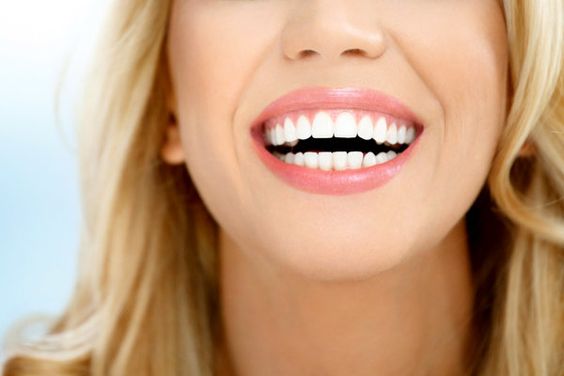Veneers and Smoking: The Impact on Your Smile

Composite Veneers Cost in Dubai have revolutionized cosmetic dentistry by offering a way to achieve a flawless smile with minimal intervention. However, if you're a smoker, understanding the impact of smoking on veneers is crucial. Smoking not only affects your overall oral health but also poses specific challenges for those with veneers. This article delves into how smoking impacts veneers and what you can do to maintain your beautiful smile.
Understanding Veneers
Veneers are thin shells of porcelain or composite resin that cover the front surface of your teeth. They are designed to enhance the appearance of your smile by addressing issues such as discoloration, chipped teeth, gaps, and uneven alignment. Veneers are popular due to their ability to create a natural-looking, aesthetically pleasing smile. However, they are not immune to the effects of lifestyle habits like smoking.
The Effects of Smoking on Veneers
1. Staining and Discoloration
One of the most noticeable impacts of smoking on veneers is staining and discoloration. While veneers are resistant to stains compared to natural teeth, they are not entirely immune. Tobacco smoke contains nicotine and tar, which can seep into the porous surfaces of veneers, leading to yellowing and discoloration over time. This can be particularly problematic for porcelain veneers, as they are designed to mimic the natural color of teeth. Discoloration can compromise the aesthetic appeal of your smile and necessitate additional treatments to restore their original appearance.
2. Decreased Longevity
Smoking can also affect the longevity of your veneers. The chemicals in cigarette smoke can weaken the bonding material that holds the veneers in place. This weakening can lead to premature loosening or detachment of the veneers, requiring costly repairs or replacements. Additionally, smoking can accelerate the wear and tear on veneers, leading to a shorter lifespan compared to non-smokers.
3. Increased Risk of Gum Disease
Smoking is a major risk factor for gum disease, which can indirectly affect your veneers. Gum disease weakens the supporting tissues around your teeth and can lead to gum recession. If gum disease progresses, it may create a gap between your veneers and the underlying tooth structure, potentially compromising the bond and leading to aesthetic and functional issues. Gum disease can also cause bad breath, which can negatively impact your overall oral hygiene and the appearance of your smile.
4. Reduced Oral Hygiene
Smokers often face challenges in maintaining optimal oral hygiene. The chemicals in tobacco can diminish your sense of taste and smell, making it less likely for you to notice plaque buildup or other oral health issues. This can lead to poor oral hygiene, which increases the risk of decay, gum disease, and other problems that can affect both your natural teeth and veneers. Regular brushing, flossing, and professional cleanings become even more critical for smokers with veneers.
Maintaining Your Veneers as a Smoker
1. Regular Dental Checkups
If you're a smoker with veneers, it's essential to maintain regular dental checkups and cleanings. Your dentist can monitor the condition of your veneers, check for signs of staining or damage, and address any issues promptly. Professional cleanings can help remove surface stains and prevent plaque buildup, ensuring your veneers remain in good condition.
2. Enhanced Oral Hygiene Routine
Maintaining a rigorous oral hygiene routine is crucial for smokers with veneers. Brush your teeth at least twice a day with fluoride toothpaste, and floss daily to remove plaque and food particles. Consider using an antibacterial mouthwash to help reduce the risk of gum disease and bad breath. Investing in an electric toothbrush may also provide a more thorough clean, helping to keep both your natural teeth and veneers in optimal condition.
3. Avoid Staining Foods and Beverages
While veneers are less prone to staining compared to natural teeth, avoiding foods and beverages that can contribute to discoloration is still advisable. Limit your intake of coffee, tea, and red wine, which can exacerbate staining. If you do consume these items, consider rinsing your mouth with water afterward to minimize their impact on your veneers.
4. Consider Smoking Cessation
The best way to mitigate the negative impact of smoking on your veneers—and your overall health—is to quit smoking. Smoking cessation can significantly reduce the risk of staining, gum disease, and other oral health issues. Additionally, quitting smoking can improve your general well-being, enhance your oral hygiene, and contribute to a healthier, more vibrant smile.
Conclusion
Veneers offer a transformative solution for enhancing your smile, but smoking can pose significant challenges for maintaining their appearance and longevity. Staining, decreased durability, increased risk of gum disease, and reduced oral hygiene are all potential issues that smokers with veneers may face. By adhering to a rigorous oral hygiene routine, scheduling regular dental checkups, avoiding staining foods, and considering smoking cessation, you can help preserve the beauty and functionality of your veneers. Ultimately, taking these steps will not only protect your investment in veneers but also contribute to a healthier, more confident smile.